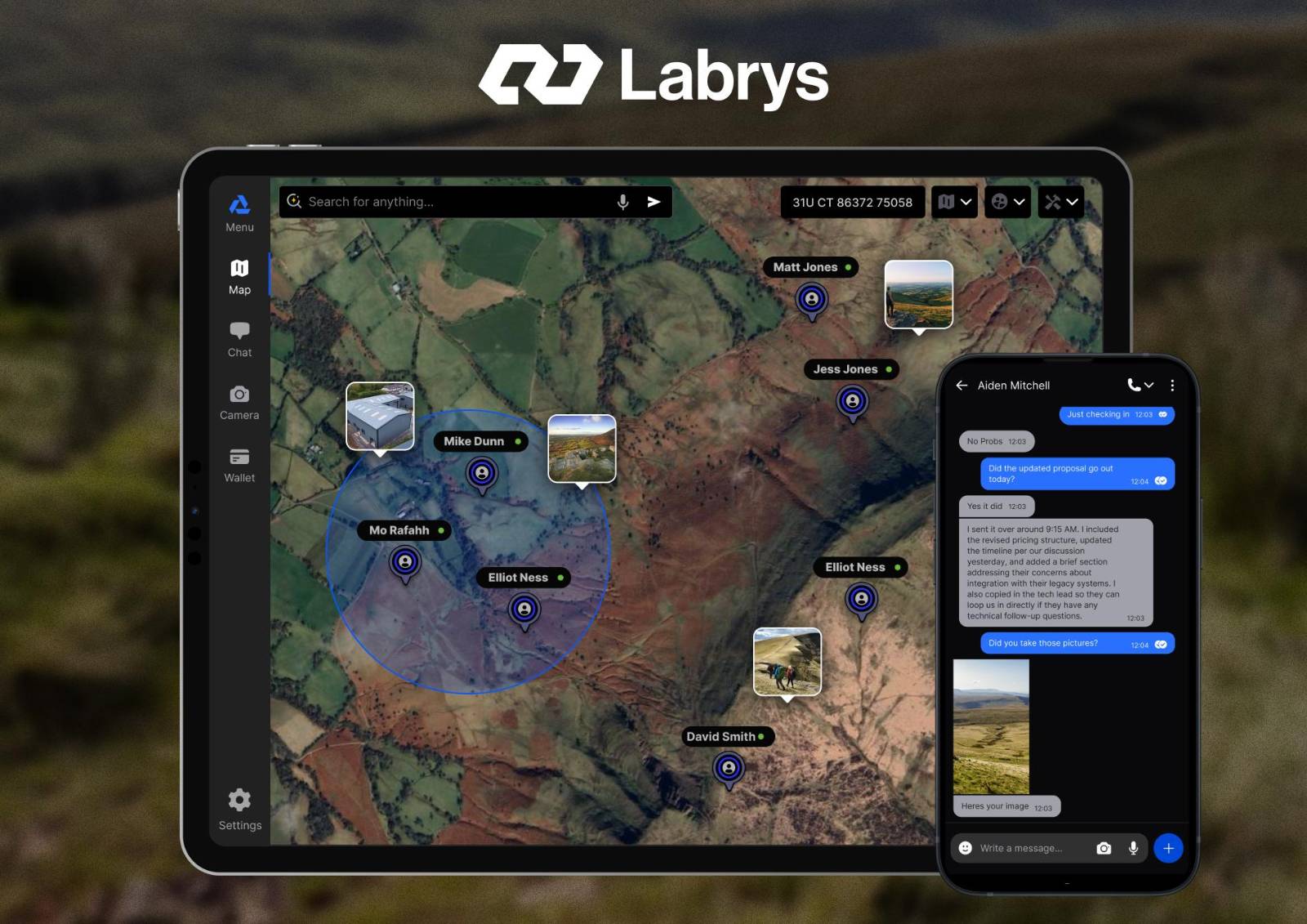Labrys Technology Secures $20 Million Investment to Enhance Defense Coordination
A cutting-edge platform designed for personnel management and secure payments, founded by two ex-soldiers, has successfully acquired $20 million in venture capital funding. This military-grade solution has gained approval for use by the Ministry of Defence.
August “Gus” Lersten, a veteran of the Royal Marines, and Luke Wattam, who served as an army linguist, are leveraging this funding for their company, Labrys Technologies. They aim to address the growing issue of unregulated technologies—termed “shadow IT”—that disrupt the collaboration between civil and defense sectors during critical humanitarian and conflict situations.
Current operations by governments, military forces, and aid organizations often combine highly secure systems with consumer-grade tools like Signal and WhatsApp. While these chat applications provide convenience, they lack essential features such as user verification, task tracking, and payment processing capabilities.

According to Lersten, the increasing reliance on these informal channels raises significant trust issues. “Using platforms like WhatsApp or Signal can lead to uncertainty about who you are communicating with,” he explained. “Access can easily be compromised, leading to potential trust breakdowns.”
The UK’s government has officially sanctioned Labrys for implementation across various departments, including the Ministry of Defence, under a multi-year agreement. Its functionality is also being utilized by NATO allies and emergency service organizations, including responses to the Kakhovka dam incident in Ukraine in 2023.
As the chief executive, Lersten highlighted scenarios where agencies equipped with secure systems suddenly need to incorporate large teams from diverse organizations for disaster response efforts. “We aim to connect the realms of exceptional security with collaborative outreach,” he stated. “In today’s environment, the police may need to work alongside military units and civilian volunteer groups during emergencies like flooding. Long onboarding processes for classified systems can severely hinder operational efficiency.”
Lersten, aged 36, clarified that Labrys’s Axiom software isn’t intended to entirely replace chat applications. Instead, it seeks to enhance coordination by identifying all participants in conversations and flagging unauthorized individuals, thereby mitigating risks, as exemplified by a recent incident involving US officials.
The platform’s predictive HR and payment capabilities could be beneficial for large corporations needing precise management of their global workforce, featuring verification processes, task oversight, compliance control, and secure transactions in cryptocurrency stablecoins, such as USDT and USDC, operating across various blockchain platforms, including Ethereum.
With 21 employees, Labrys has achieved significant milestones, reporting seven-figure annual revenues and accumulating a total of $25.5 million in investments. The latest funding round was spearheaded by Plural, a consortium of investors including Taavet Hinrikus, co-founder of Wise.
Sten Tamkivi, a partner at Plural, noted that while traditional defense innovations often focus on hardware, there is a critical need for reliable systems that facilitate human coordination during vital operations. He further remarked, “The concept of only military personnel managing security operations is outdated. Modern operations increasingly depend on close collaboration across diverse networks and varying levels of trust.”
In a statement regarding national defense, Prime Minister Sir Keir Starmer emphasized that the recent defense review aims to unify the country towards a common objective as the UK progresses towards enhanced military preparedness.




Post Comment